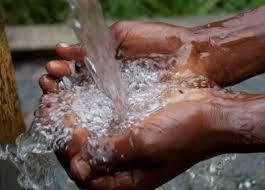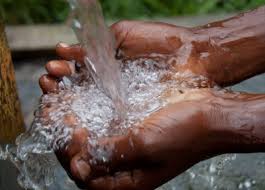
Dailycsr.com – 17 August 2015 – Since over a decade, the company of Nestlé, thanks to his chairman, Peter Brabeck-Letmathe’s belief has been extra cautious regarding the issue of water scarcity that is likely to surface in the near future. Already “one fifth of the world’s population” are denied of access to water while another quarter faces water issues due to poor infrastructure which fails to supply water to them.
It is estimated that given the current ratio of water usages, by the year of 2030, the withdrawal of this essential natural resource will mostly “exceed renewals by 40%”. However, tackling with this problem will be like fighting a war on two fronts simultaneously, as the world will have to battle the “rapidly growing population” along with controlling the situation of water wastage, pollution combined with unsustainable managements. As per Simon Webley:
It is estimated that given the current ratio of water usages, by the year of 2030, the withdrawal of this essential natural resource will mostly “exceed renewals by 40%”. However, tackling with this problem will be like fighting a war on two fronts simultaneously, as the world will have to battle the “rapidly growing population” along with controlling the situation of water wastage, pollution combined with unsustainable managements. As per Simon Webley:
“Ten percent of extracted water goes to domestic use, 20% to industry and a staggering 70% is used in agriculture.”
Just like most of the industrial figures, Nestlé too is dependent on the agricultural water distribution, whereby it has to face “water stress and water scarcity” issues that affect the farmers directly eventually reflect on the capacity of growth which in turn is provided as raw material to the company. Nestlé’s Public Affairs Communications’ senior manager, John Bee informs that:
“In 2013, the water consumed by the crops that we purchase amounted to 65 billion m3 – 94% from rainwater and 6% from irrigation.
“Our factories use water too - 147m m3 were withdrawn in 2014 - and 38% of those factories are situated in water-stressed areas. We use water for cooking and cooling, washing and cleaning.
“Our employees and consumers, too, need to be healthy, which means having access to safe drinking water and sanitation.
“It is in our material interest to spearhead progress on this issue”.
Consequently, the company has initiated a “Water Stewardship” programme in 2013 which aims to increase sustainable water usage culture whereby increasing operational efficiency, to push for “effective water policies and stewardship”, to spread awareness among farmers towards water conservation along with improving the access to water and sanitation “across its value chain”.
In fact, till date the company has already managed to cut down on its water withdrawals by “38%” while reducing its discharge rate by “52%”. These two “outstanding” feats were achieved by the year of 2005. Recently, the company has installed “new processes” in the Mexican “Cero Agua plant”, whereby the water withdrawals rate of this particular plant has come down to zero. Moreover, Nestlé has also catered to the water needs for the local communities around its factory bases. Likewise, the Douala factory, situated at Cameroon, have enabled “free access to clean water on the site” within a radius of three kilometres, whereby people daily take home “around 5,000 litres” of water. According to Bee:
“Worldwide, 400,000 people had access to water and sanitation last year around our manufacturing facilities and in Farmer Connect areas, meaning we met out 2016 target early.
“Working with the International Federation of Red Cross and Red Crescent societies (IFRC), we have helped provide 196,546 people in Côte d’Ivoire’s cocoa communities with clean drinking water and sanitation facilities and in Southeast Asia we have managed to get water education onto the school curriculum at the same time as installing wells in the playgrounds.
“Through education initiatives, we are helping our employees, suppliers and consumers to improve their understanding of the importance of water conservation and stewardship. Just small behavioural differences can make a big difference and these do not always require significant investment.”
Nevertheless, tackling the issue of water shortage is more difficult than it seems as different locations “present different problems” and solutions need to be customised accordingly. Consequently, the company of Nestlé believes that involvement of local governments, communities, NGO’s, Institutions is essential for its success. Consequently, besides making its factories manage usage of water sustainably, the company also works at the ground level with farmers to educate them on the subject and to provide them with a constant pillar of support. Bee also adds:
“We believe there is a clear and compelling economic case for businesses to demonstrate leadership by addressing this situation. Food manufacturers are not alone in their high use of water. Other industrial sectors are significant water users, too. It is in all of our interests to act on this issue.”


 Nestlé Sets An Example On Being A Water Steward
Nestlé Sets An Example On Being A Water Steward




 Companies
Companies